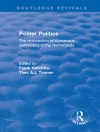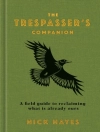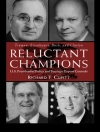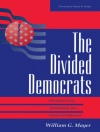Illuminates how local board systems operate and the motivations and experiences of their members.
While 97 percent of all American cities are smaller than 50, 000 and millions of Americans experience civic life in these communities, what we know about their politics and governance is limited, particularly how local board systems operate, who the board members are, what motivates them to serve, and what they think about their experiences. Drawing on a unique and extensive set of survey data from board members, mayors, and city councilors in sixty cities across six states, Government in the Twilight Zone significantly expands our knowledge of small city boards and politics. By embedding the empirical research in the historical trajectory of small towns, John R. Baker provides a rich narrative that discusses the role of entities such as planning commissions, parks and recreation boards, and zoning appeals boards. He also clarifies how board and commission members are recruited in small cities, explains how these organizations work to make the decisions required of them, and reveals what they and their city councilors and mayors think about their importance and effectiveness.
Jadual kandungan
List of Illustrations
Acknowledgments
Introduction: Government in the Twilight Zone: Volunteers to Small-City Boards and Commissions
1. ‘We’re Not Dead Yet’—Small Cities Become Big(ger) Players?
2. The Taxonomy of Local Boards and Commissions in Small Cities
3. The Ties that Bond and Bridge: Small-Town Board Members as Social Capitalists
4. Incentive Theory and Voluntarism: Motivations for Board Service
5. Explaining Recruitment Patterns of Board Members
6. Inside the Twilight Zone: Board Operations and Members’ Experiences
7. The View From the Top: City Councilors and Mayors Assess Their City’s Boards and Commissions
8. Exiting the Twilight Zone
Notes
References
Index
Mengenai Pengarang
John R. Baker is Professor of Political Science at Wittenberg University. He is the editor of Lanahan Readings in State and Local Government: Diversity, Innovation, Rejuvenation.












